Turner - Behavioral interviewing guide: a practical, structured approach for conducting effective selection interviews: past behavior is the best predictor of future behavior
Here you can read online Turner - Behavioral interviewing guide: a practical, structured approach for conducting effective selection interviews: past behavior is the best predictor of future behavior full text of the book (entire story) in english for free. Download pdf and epub, get meaning, cover and reviews about this ebook. City: Victoria, B.C., year: 2004, publisher: Trafford Publishing, genre: Romance novel. Description of the work, (preface) as well as reviews are available. Best literature library LitArk.com created for fans of good reading and offers a wide selection of genres:
Romance novel
Science fiction
Adventure
Detective
Science
History
Home and family
Prose
Art
Politics
Computer
Non-fiction
Religion
Business
Children
Humor
Choose a favorite category and find really read worthwhile books. Enjoy immersion in the world of imagination, feel the emotions of the characters or learn something new for yourself, make an fascinating discovery.
- Book:Behavioral interviewing guide: a practical, structured approach for conducting effective selection interviews: past behavior is the best predictor of future behavior
- Author:
- Publisher:Trafford Publishing
- Genre:
- Year:2004
- City:Victoria, B.C.
- Rating:5 / 5
- Favourites:Add to favourites
- Your mark:
Behavioral interviewing guide: a practical, structured approach for conducting effective selection interviews: past behavior is the best predictor of future behavior: summary, description and annotation
We offer to read an annotation, description, summary or preface (depends on what the author of the book "Behavioral interviewing guide: a practical, structured approach for conducting effective selection interviews: past behavior is the best predictor of future behavior" wrote himself). If you haven't found the necessary information about the book — write in the comments, we will try to find it.
Is your organization using the most effective type of interviewing in your hiring and promotional processes? Selection research results indicate that the most valid type of interview to use is a structured, behavioral interview that is focused on the success related knowledge, skills and personal qualities. Behavioral Interviewing Guide provides you with a practical step-by-step approach for planning, conducting and evaluating a structured, behavioral interview. Some of the many supporting documents, guides and techniques included in the book are:
Selection criteria definitions,
Twenty five pages of categorized behavioral questions,
Generic interview guides for both management and non-management positions,
Self assessment quiz, and;
Generic behavioural background/reference check guide.
Also incorporated into the guide are the interviewing best practices of predetermining selection criteria, using a team/panel of interviewers, using a...
Turner: author's other books
Who wrote Behavioral interviewing guide: a practical, structured approach for conducting effective selection interviews: past behavior is the best predictor of future behavior? Find out the surname, the name of the author of the book and a list of all author's works by series.

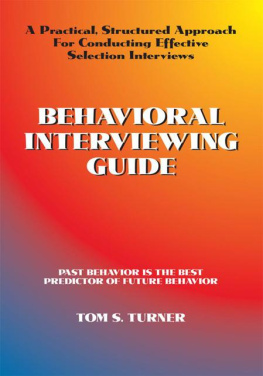




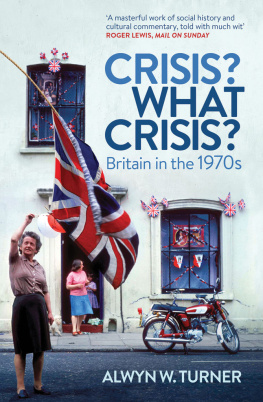
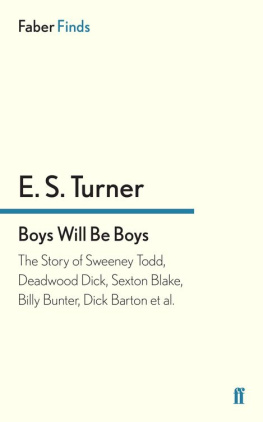




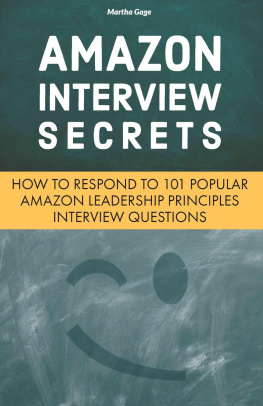
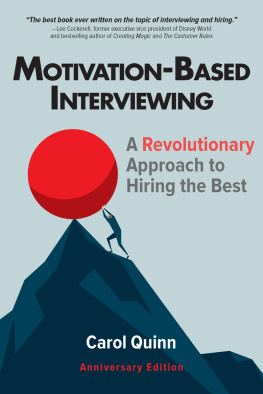
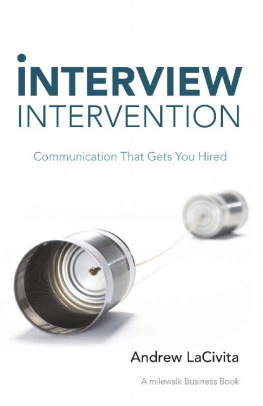
 Selection criteria for the vacant position are identified and defined in advance of the interview.
Selection criteria for the vacant position are identified and defined in advance of the interview. The identified selection criteria correlate with successful position performance. In other words, they are all bona fide occupational requirements/qualifications.
The identified selection criteria correlate with successful position performance. In other words, they are all bona fide occupational requirements/qualifications. All interview questions focus on the success selection criteria.
All interview questions focus on the success selection criteria. A large majority of the interview questions are behavioral. Example: Tell us about a time in the last six months when you suggested an improvement idea to your supervisor.
A large majority of the interview questions are behavioral. Example: Tell us about a time in the last six months when you suggested an improvement idea to your supervisor. Almost all of the interview questions are prepared in advance.
Almost all of the interview questions are prepared in advance. The candidates application information is read before the interview and the behavioral questions are tailored to fit the information, when possible.
The candidates application information is read before the interview and the behavioral questions are tailored to fit the information, when possible. Hypothetical or situational questions are not used. Examples: What would you do if.? If you were in the situation of , what would you do?
Hypothetical or situational questions are not used. Examples: What would you do if.? If you were in the situation of , what would you do? Leading questions are avoided. Example: Are you a team player?
Leading questions are avoided. Example: Are you a team player? No illegal/unacceptable questions are asked. Example: How old are you?
No illegal/unacceptable questions are asked. Example: How old are you? Stress questions are only used for gathering behavior about interpersonal stress tolerance and related criteria.
Stress questions are only used for gathering behavior about interpersonal stress tolerance and related criteria. Follow-up questions are asked to obtain a complete behavioral answer. Examples: How did you handle the problem? What was the result?
Follow-up questions are asked to obtain a complete behavioral answer. Examples: How did you handle the problem? What was the result? Interviewers use techniques and methods that make candidates feel comfortable.
Interviewers use techniques and methods that make candidates feel comfortable. Interviewers take detailed notes throughout the interview.
Interviewers take detailed notes throughout the interview. Interviewees talk the majority of time.
Interviewees talk the majority of time. Two or more interviewers interview and evaluate each candidate.
Two or more interviewers interview and evaluate each candidate. The same interviewers, interview all candidates for a specific opening.
The same interviewers, interview all candidates for a specific opening. A predetermined candidate rating procedure is used.
A predetermined candidate rating procedure is used. Enough time is scheduled for each interview and its evaluation; consequently, the interviews are not rushed.
Enough time is scheduled for each interview and its evaluation; consequently, the interviews are not rushed. Interviewers do not make quick judgments about candidate suitability. Judgments are made only after a thorough post-interview evaluation is completed.
Interviewers do not make quick judgments about candidate suitability. Judgments are made only after a thorough post-interview evaluation is completed. Interviewers do not let biases and stereotypes distort their candidate evaluations.
Interviewers do not let biases and stereotypes distort their candidate evaluations. Candidates are rated against the selection criteria and not against each other.
Candidates are rated against the selection criteria and not against each other. Interviewers reach a consensus evaluation on each candidate, after first making independent evaluations.
Interviewers reach a consensus evaluation on each candidate, after first making independent evaluations. Pressure to fill the position leading to selecting unsuitable candidates, is resisted.
Pressure to fill the position leading to selecting unsuitable candidates, is resisted. Behavioral background checks are completed on acceptable candidates.
Behavioral background checks are completed on acceptable candidates.